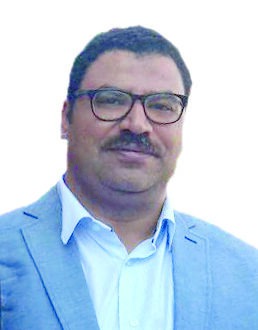Sudan, a nation blessed with fertile lands and the potential to be the breadbasket of Africa, faces a cruel twist of fate. A brutal year-long conflict has pushed the country to the brink of famine, forcing the international community to scramble to deliver aid. This situation exposes a glaring paradox and failure demanding immediate action.
Firstly, the international community has been neglectful. While the conflict simmered, the world largely looked away. This “inattention,” as German Foreign Minister Annalena Baerbock aptly described it, allowed tensions to fester and ultimately erupt into violence. The result: a humanitarian catastrophe where millions teeter on the edge of starvation.
Secondly, the warring factions within Sudan have prioritised power struggles over the well-being of their citizens. This senseless conflict has shattered the nation’s economic potential, turning fertile land and resources into battlegrounds. The dream of a prosperous Sudan lies in ruins.
The way ahead requires a multifaceted approach. Immediate humanitarian aid is crucial to alleviate the suffering, but a long-term solution demands addressing the root causes of the conflict. Dismantling the “violent kleptocracy,” as some experts suggest, is essential to break the cycle of violence and exploitation that has plagued Sudan.
The recent international gathering in Paris sought to rally support for Sudan’s struggling population, underscoring the grave situation the country faces. While pledges of aid exceeding €2 billion were made, the stark reality is that only a fraction of the necessary funding has been received so far. The conference served to highlight the dire circumstances confronting Sudan and the critical need for continued international assistance to address the challenges its people are grappling with.
The failure of the international community to adequately address Sudan’s plight speaks volumes about the challenges of modern diplomacy. Leaders worldwide voice unity and guarantee- help. But facts on the ground contradict this. Red tape- and logistical issues hinder humanitarian efforts. Political fixe-s seem unattainable amid clashing groups and factions.
A plan beyond temporary aid is urgently needed to find peace. This strategy must involve- more than just global mediators. Sudanese- experts should contribute too. Sociologists, political scientists, economists from Sudan offer valuable understanding of root causes. Collaborating, they could craft approaches uprooting discontent seeds, building a lasting peaceful path.
At the heart of Sudan’s crisis lies a fundamental question of governance and accountability. The Sudanese people, weary from years of conflict and deprivation, deserve more than just temporary relief measures. They deserve a future free from violence and oppression, where their voices are heard and their rights respected.
Sudan’s tragedy shows the- world how neglecting conflicts harms people- terribly. The international community must learn from it and work actively to help stop conflicts from starting. For the Sudanese people, the dream of a peaceful and prosperous nation lies within reach. By uniting their own expertise with international support, they can transform their breadbasket from a symbol of famine to a beacon of hope and self-sufficiency.






Discussion about this post